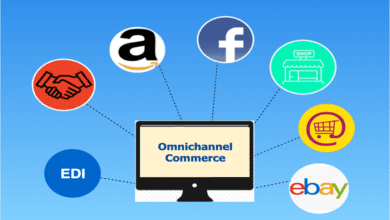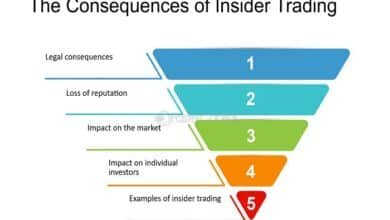What is a Wholesaler and How Does It Work?

If you are a retailer, a manufacturer, or a business owner, you may have heard of the term wholesaler. But what exactly is a wholesaler, and how does it work? In this blog post, I will explain the definition, types, benefits, and challenges of wholesaling, and how you can find and work with a wholesaler for your business.
What is a Wholesaler?
A wholesaler is a company or individual that purchases products in bulk from multiple suppliers and sells these products to other businesses for resale, acting as an intermediary between manufacturers and retailers. By managing inventory and providing storage solutions, wholesalers alleviate the need for retailers to maintain large storage spaces, which can be cost-prohibitive.
Wholesalers typically buy goods at a lower price than retailers, as they benefit from discounts for buying large quantities. They then sell the goods at a higher price to retailers, who mark up the price further to sell to the end customers. The difference between the wholesale price and the retail price is the profit margin for both the wholesaler and the retailer.
Wholesalers usually specialize in one product category or industry, such as clothing, electronics, or food. They may also offer additional services, such as delivery, packaging, or marketing, to help retailers sell their products.
What are the Types of Wholesalers?
There are different types of wholesalers, depending on their functions, ownership, and distribution channels. Some of the common types of wholesalers are:
- Merchant wholesalers: These are the most common type of wholesalers, who buy and take title to the goods they sell. They own and operate their own warehouses, where they store and distribute the goods. They may sell to retailers, other wholesalers, or industrial users.
- Agents and brokers: These are intermediaries who do not take title to the goods they sell. They act as representatives of the manufacturers or suppliers, and earn commissions or fees for their services. They may facilitate transactions, negotiations, or contracts between buyers and sellers.
- Manufacturers’ sales branches and offices: These are extensions of the manufacturers or producers, who sell their own products directly to retailers or other buyers. They may operate their own warehouses, or use third-party logistics providers, to store and distribute the goods.
- Dropshippers: These are wholesalers who do not stock or handle the goods they sell. They take orders from buyers, and then transfer them to the manufacturers or suppliers, who ship the goods directly to the buyers. Dropshippers charge a fee or a percentage of the sales price for their service.
What are the Benefits of Wholesaling?
Wholesaling has many benefits for both the wholesalers and the retailers, such as:
- For wholesalers:
- They can leverage their economies of scale and bargaining power, to buy goods at lower prices and sell them at higher prices, and make profits from the difference.
- They can reduce their risks and liabilities, by not having to deal with the end customers, and by transferring the ownership and responsibility of the goods to the retailers.
- They can expand their market reach and customer base, by selling to multiple retailers, who have access to different segments and locations of the market.
- For retailers:
- They can save time and money, by not having to source, store, or transport the goods themselves, and by relying on the wholesalers’ expertise and efficiency.
- They can access a wide variety of products and brands, by buying from different wholesalers, who have connections with multiple manufacturers and suppliers.
- They can increase their sales and profits, by buying goods at lower prices and selling them at higher prices, and by offering more choices and value to the customers.
What are the Challenges of Wholesaling?
Wholesaling also has some challenges and drawbacks, such as:
- For wholesalers:
- They may face competition and price pressure, from other wholesalers, who offer similar or better products, services, or prices.
- They may face fluctuations and uncertainties, in the supply and demand of the goods, due to market conditions, consumer preferences, or external factors.
- They may face legal and ethical issues, such as taxes, regulations, or compliance, depending on the type and origin of the goods they sell, and the countries they operate in.
- For retailers:
- They may face quality and reliability issues, with the goods they buy from the wholesalers, such as defects, damages, or delays, which may affect their reputation and customer satisfaction.
- They may face dependency and vulnerability issues, with the wholesalers they buy from, such as shortages, outages, or price changes, which may affect their inventory and cash flow.
- They may face differentiation and innovation issues, with the goods they sell to the customers, such as similarity, commoditization, or obsolescence, which may affect their competitiveness and profitability.
How to Find a Wholesaler for Your Business?
Finding a wholesaler for your business can be a challenging and time-consuming process, as you need to consider many factors, such as the type, quality, price, and availability of the products you need, the location, reputation, and service of the wholesaler you choose, and the terms, conditions, and contracts of the deal you make. Here are some steps you can follow to find a wholesaler for your business:
- Identify your product needs and specifications, such as the category, quantity, quality, and features of the products you want to buy, and the budget, timeline, and delivery options you prefer.
- Research and compare different wholesalers, who offer the products you need, and who meet your criteria and expectations. You can use various sources, such as online directories, databases, or platforms, such as 4, [5], or [6], trade shows, exhibitions, or fairs, where you can meet and network with potential wholesalers, or referrals, recommendations, or testimonials, from other retailers, customers, or industry experts, who have experience or knowledge of working with wholesalers.
- Contact and negotiate with the wholesalers you are interested in, and ask for more information, such as product samples, catalogs, or brochures, price quotes, discounts, or incentives, payment methods, terms, and conditions, shipping methods, costs, and times, and customer service, support, and feedback. You can also check their credentials, licenses, and certifications, and verify their reputation, reviews, and ratings, to ensure their legitimacy and reliability.
- Choose and finalize the wholesaler you want to work with, and sign a contract or an agreement, that outlines the details and expectations of the deal, such as the product specifications, quantities, and prices, the order and delivery procedures and schedules, the payment and refund policies and procedures, and the dispute resolution and termination clauses. You can also establish a long-term and mutually beneficial relationship with the wholesaler, by maintaining regular communication, feedback, and evaluation, and by seeking new opportunities, improvements, and collaborations.
How to Work with a Wholesaler for Your Business?
Working with a wholesaler for your business can be a rewarding and profitable experience, if you follow some best practices and tips, such as:
- Plan and prepare your orders and inventory, by forecasting your demand and supply, and by tracking your sales and stock levels, to avoid overstocking or understocking, and to optimize your cash flow and profitability.
- Communicate and coordinate with your wholesaler, by informing them of your orders and requirements, and by confirming their availability and confirmation, to ensure timely and accurate delivery and receipt of your goods.
- Inspect and verify your goods, by checking their quality and quantity, and by comparing them with your order and invoice, to ensure that you receive what you ordered and paid for, and to report and resolve any issues or discrepancies.
- Evaluate and review your wholesaler, by measuring their performance and satisfaction, and by providing them with feedback and suggestions, to ensure that they meet your expectations and standards, and to improve your relationship and cooperation.
Conclusion
A wholesaler is a company or individual that purchases products in bulk from multiple suppliers and sells these products to other businesses for resale, acting as an intermediary between manufacturers and retailers. Wholesaling has many benefits and challenges for both the wholesalers and the retailers, and it requires careful planning, research, negotiation, and management. To find and work with a wholesaler for your business, you can follow the steps and tips mentioned in this blog post, and enjoy the advantages and opportunities of wholesaling.




